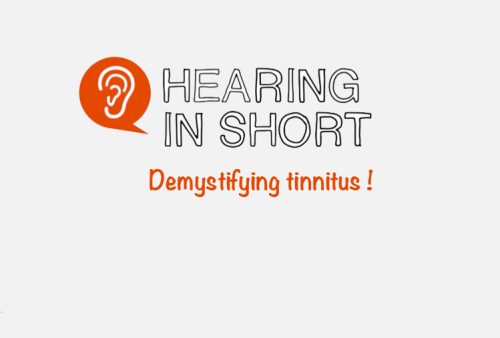
Tinnitus and stress
Stress is everywhere in our daily lives. Unfortunately, it has a negative impact on our health, causing muscle tension, appetite loss or gain, and high blood pressure, among other things.
And these health problems can then increase stress even more, creating a vicious cycle.
Stress causes tinnitus
Tinnitus is one of the potential negative effects of stress. Tinnitus, or ringing of the ears, is a noise heard inside the head or ears that does not come from outside the body.
The sound is often described as a whistling. Approximately 20% of people with continuous tinnitus feel it is disruptive, and this disruption is linked to high stress levels.
Tinnitus causes stress
Experiencing tinnitus can make people wonder and even worry about their ear health, and it may seem impossible to control. For some sufferers, it becomes a stressful aspect of their lives.
The more stress a person feels, the more they think about their tinnitus (notably when there are no other sounds, like at bedtime), and the more they focus on it and give it psychological importance, the more stressed they feel, and on and on.
Learn to manage stress
Fortunately, the vicious cycle can be broken by using stress management techniques (deep breathing, visualization, changing one’s thoughts, exercising) and tinnitus management techniques (avoiding silence, playing soft music to camouflage the tinnitus, using hearing aids).
Consult an audiologist, the healthcare professional who can help
To better control your tinnitus and its impact on your health, it is important to consult an audiologist. They can answer all your questions and guide you through the rehabilitation process.
For more information or if you have concerns about your hearing, make an appointment with an audiologist, who will be happy to answer your questions.
BY JENNY TURCOTTE, Audiologist at Polyclinique de l’Oreille



